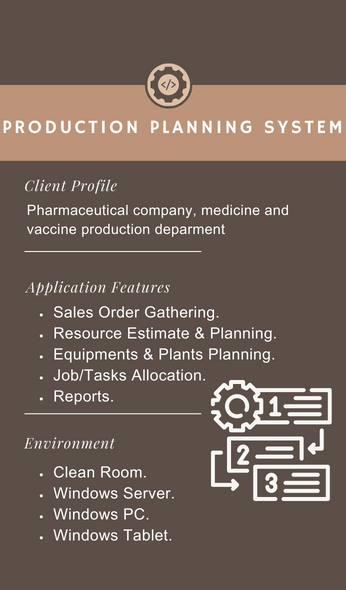Introduction
In the world of enterprise software development, it is crucial to balance the need for rapid deployment and strict compliance with corporate IT policies. In this case study, we discuss how our team successfully implemented a Sales Order Management System for a European MNC's Singapore office using Microsoft Excel VBA and Forms, thereby reducing the time to market and ensuring compliance with the company's IT policy.
Note: information shared here does not reveal any confidential project data or workflow.

The Challenge
Our client required a custom application to manage their time-sensitive sales orders, with the capability to check production resources such as plants, equipment, manpower, and raw materials. The system needed to break down the orders into an 8-stage process, with each stage containing tasks associated with resources and dependencies.
However, the client's headquarters had a stringent IT policy, which meant that any custom-built solution would need to undergo a lengthy compliance check and approval process, potentially lasting over 12 months. To overcome this challenge, we turned to Microsoft Excel, an approved application within the client's IT policy.
The Solution: Excel VBA and Forms
Our team designed and implemented the Sales Order Management System using Excel VBA and Forms. This approach offered several advantages:
- Easy Deployment: The solution did not require server setup and could work on the company's existing local area network (LAN).
- No Extra Compliance Check: Since Excel was already approved by the client's IT policy, there was no need for additional compliance checks.
- Shorter Development Window: By leveraging Excel's built-in features and VBA capabilities, our team was able to deliver the project within three months.
- Data Accessibility: Users could easily copy data for analysis, streamlining the reporting process.
Despite these advantages, there were some drawbacks to using Excel VBA and Forms:
- Limited Concurrent Users: The solution did not support a large number of concurrent users.
- Performance Issues: With over 100,000 rows of data, the application could become slow.
- Windows Environment Only: The solution was restricted to the Windows operating system.
- Limited Scalability: The system could not be easily scaled up to accommodate future growth.
Conclusion
In this case study, we demonstrated the effective use of Excel VBA and Forms to develop a Sales Order Management System for a time-sensitive business environment. While the solution had some limitations in terms of performance and scalability, it allowed for rapid deployment, compliance with the client's IT policy, and easy data accessibility.
This approach is a testament to the power of leveraging existing tools and technologies to develop custom solutions for specific business needs. Excel VBA and Forms can be a viable option for organizations looking to develop applications quickly and within the confines of their IT policies, particularly for smaller-scale projects or interim solutions.